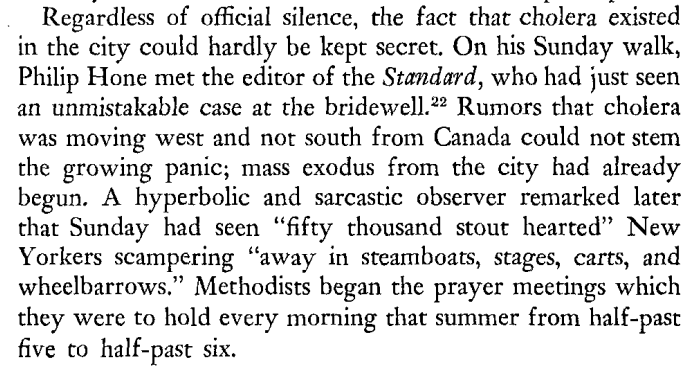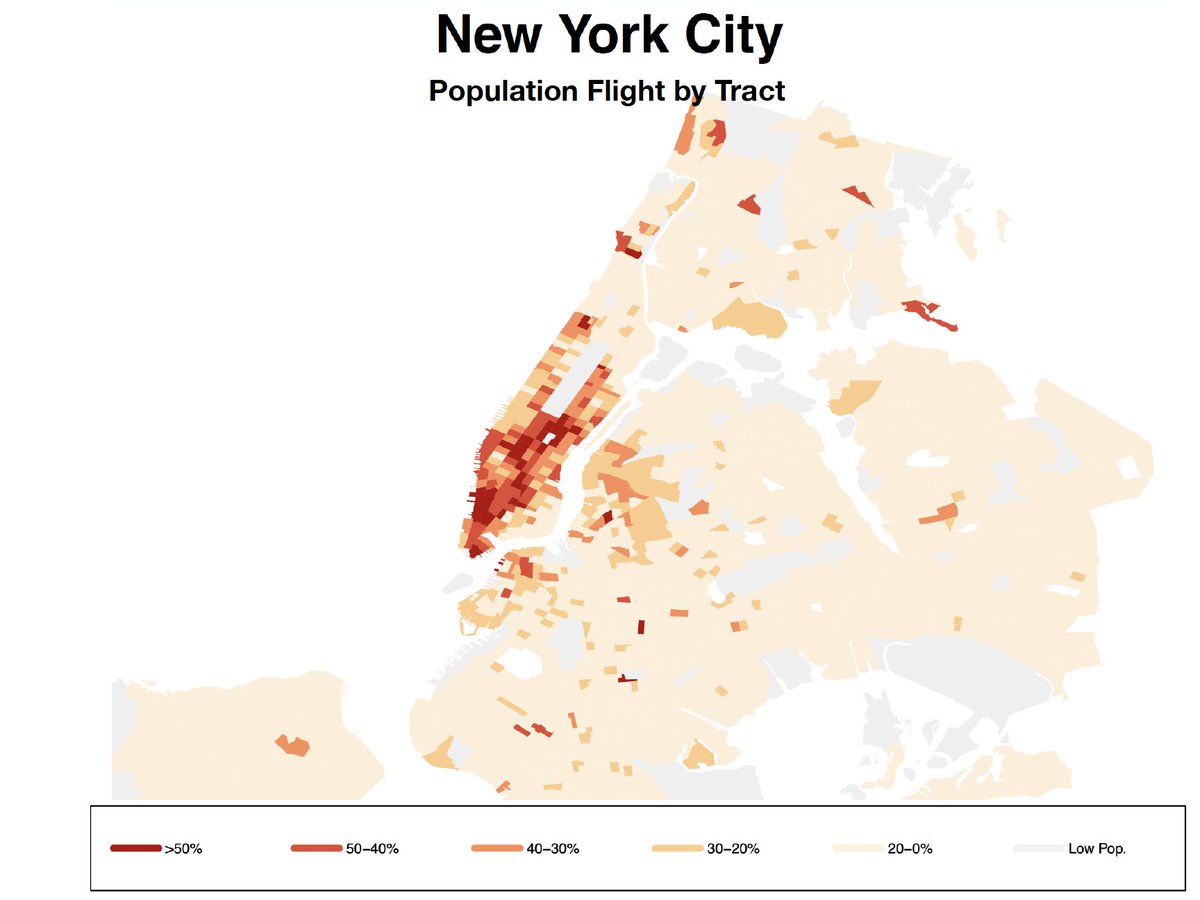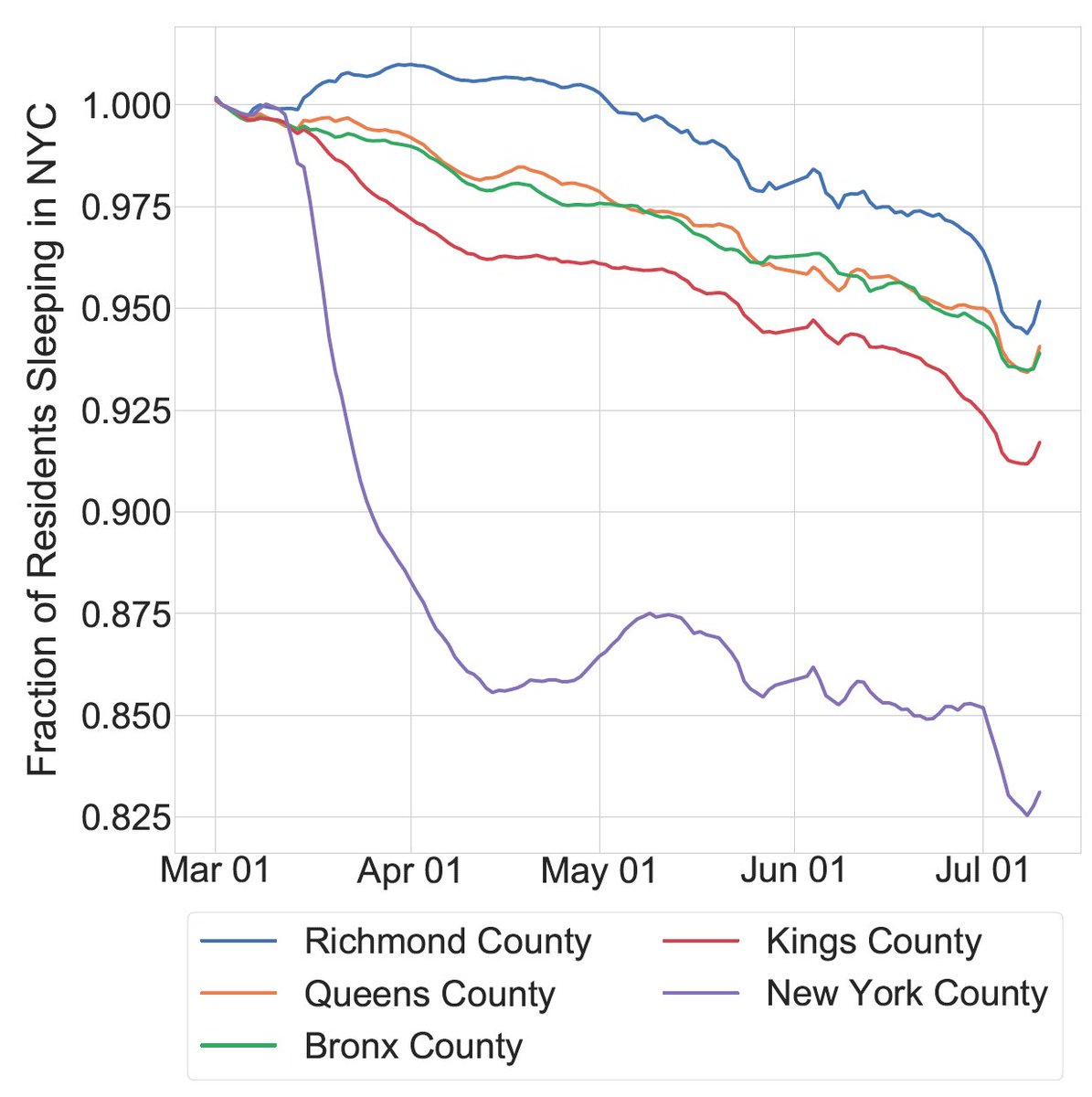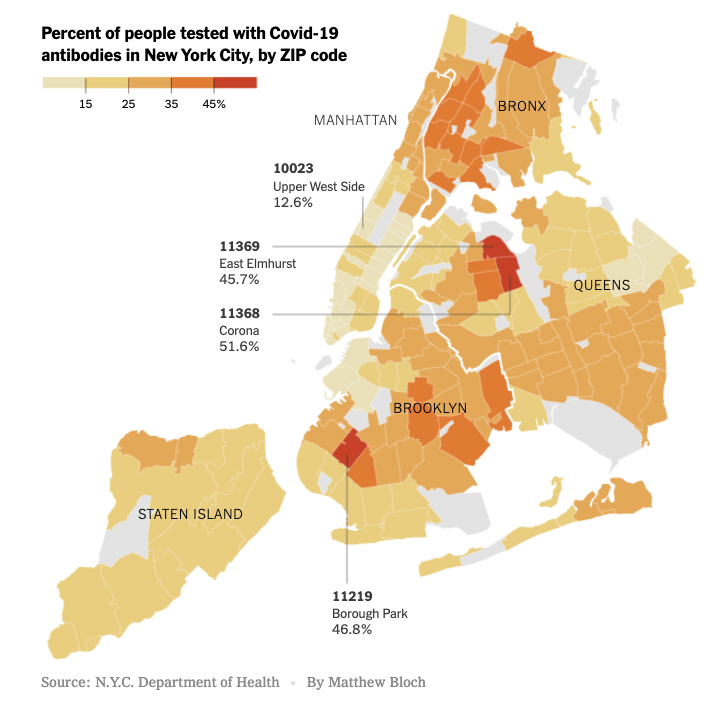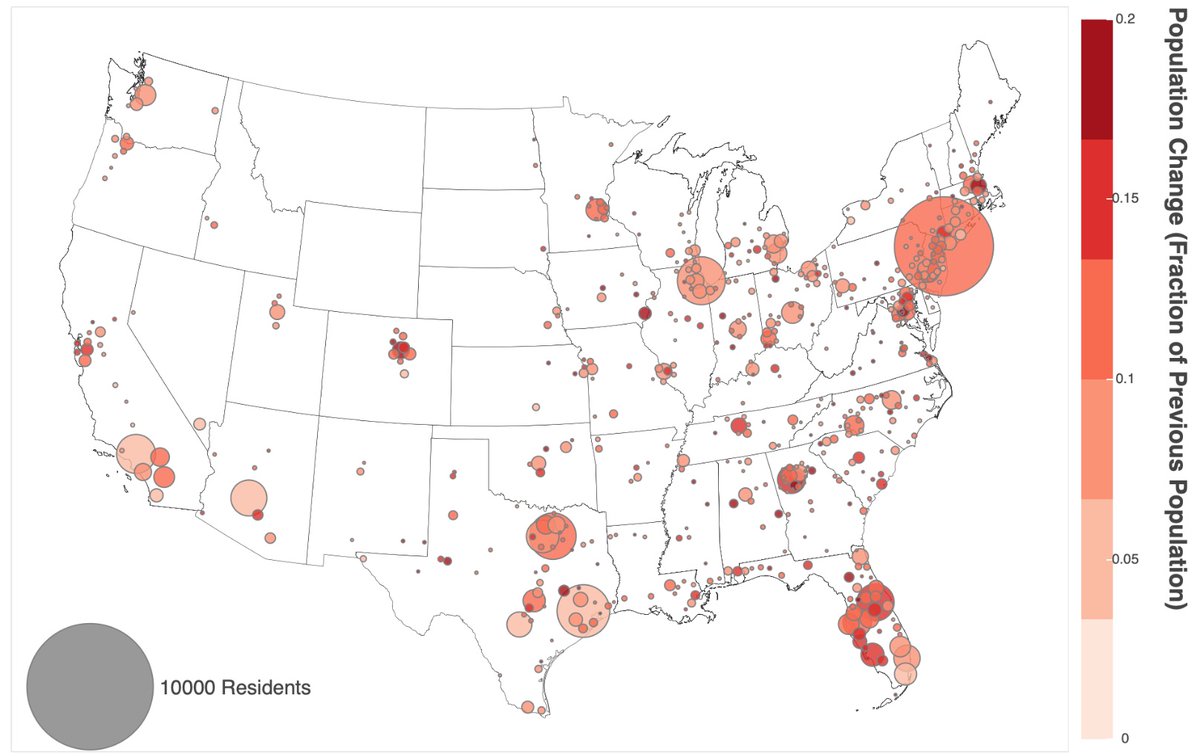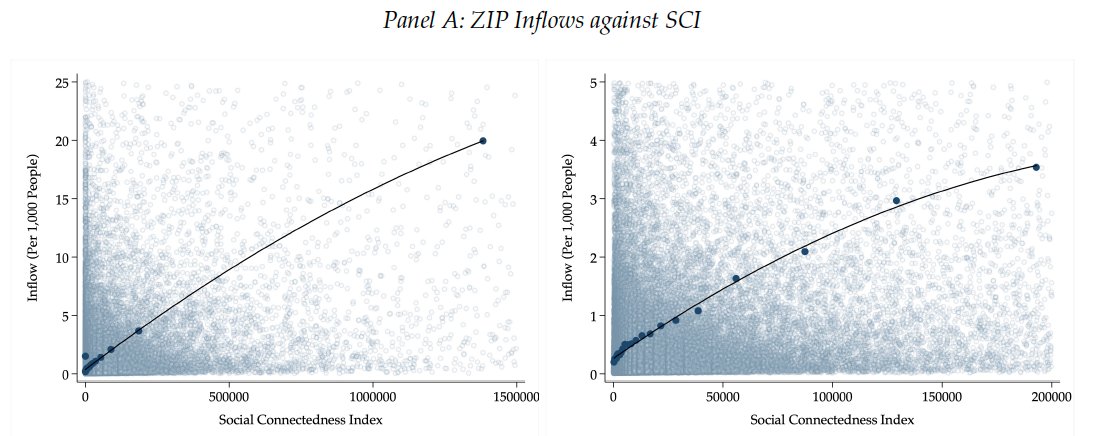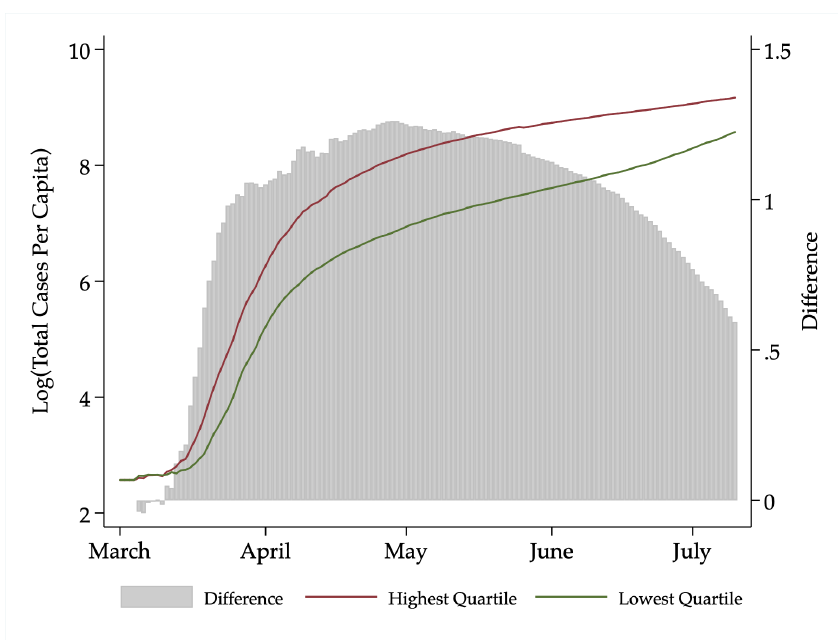With @josh_coven and Iris Yao: we document substantial migration around this pandemic in Spring, which spread disease to the rest of the country.
Paper: https://papers.ssrn.com/sol3/papers.cfm?abstract_id=3711737
Substack">https://papers.ssrn.com/sol3/pape... discussion: https://arpitrage.substack.com/p/escape-from-new-york
Video,">https://arpitrage.substack.com/p/escape-... thread
Cities have historically been cesspools of disease, which has changed only recently. As a result, outbreaks often led to folks (here, in the 1832 cholera outbreak) leaving cities:
https://www.amazon.com/Cholera-Years-United-States-1832/dp/0226726770">https://www.amazon.com/Cholera-Y...
https://www.amazon.com/Cholera-Years-United-States-1832/dp/0226726770">https://www.amazon.com/Cholera-Y...
We use mobile phone geolocation data to find similar trends over the course of Covid-19. In New York City, for instance, you can see this exodus was pretty massive and concentrated in wealthy areas, with 15-20% of the resident population of Manhattan leaving:
This pattern of flight by the Zooming remote working class contributes to these unbelievably stark pictures of disparities in who gets hit.
The densest, most tightly packed parts of NYC have seen very little disease transmission!
https://www.nytimes.com/2020/08/19/nyregion/new-york-city-antibody-test.html">https://www.nytimes.com/2020/08/1...
The densest, most tightly packed parts of NYC have seen very little disease transmission!
https://www.nytimes.com/2020/08/19/nyregion/new-york-city-antibody-test.html">https://www.nytimes.com/2020/08/1...
We look across the country to observe the urban regions experiencing flight, and see where they leave to.
We use the measure of social connectivity based on Facebook friends which my colleagues Theresa Kuchler, @DomRussel, @stroebel_econ have developed, to find migration is higher to socially connected areas as people shelter with friends/family:
http://pages.stern.nyu.edu/~jstroebe/PDF/SCI_and_COVID.pdf">https://pages.stern.nyu.edu/~jstroebe...
http://pages.stern.nyu.edu/~jstroebe/PDF/SCI_and_COVID.pdf">https://pages.stern.nyu.edu/~jstroebe...
Areas with more NYC influx subsequently experience more cases. So while the migration channel might be personally protective, it carries externalities which spread cases around the country.
We instrument for migration with social networks (I dunno I think our F stat is pretty high and okay?) and see a causal relationship between migration and destination cases.
One implication here is I think we really need more curbs on regional transit.
Test-on-entry, or enforced quarantine. Or we are just going to see these recurring regional waves wash back and forth over the country.
Test-on-entry, or enforced quarantine. Or we are just going to see these recurring regional waves wash back and forth over the country.
Other implications have to do with the future of cities and public finance.
I don& #39;t think "cities are dead" but important changes in future with more work from home.
I don& #39;t think "cities are dead" but important changes in future with more work from home.

 Read on Twitter
Read on Twitter